Most people think Dementia is only about forgetfulness, but there is so much more to it. For example, one of the most concerning issues to caregivers is dealing with poop.
Unfortunately, there are quite a few Dementia poop issues, and none are good! I have dealt with everything from finding poop in small garbage cans and closets to bowel obstructions.
This week I saw another dementia patient taken into emergency surgery for a bowel obstruction, which prompted me to write this article. I will start with the bowel basics and walk through the main issues you may have.

Dementia Poop Basics
The bowels slow down with aging and decreased mobility, causing the waste to move slower. This slowing leads to increased difficulty moving the bowels. Moving the bowels infrequently (less than three times a week) or difficulty passing stool is known as constipation.
Constipation can be painful with abdominal fullness, gas, and cramping and may lead to a bowel obstruction. Bowel obstruction can be severe and lead to a medical emergency. For people in the later stages of the disease, constipation and discomfort can lead to agitation. Unfortunately, they don’t know what’s happening or how to tell the caregiver they are hurting. It is so important for caregivers to track their loved ones’ bowels.

Diarrhea
Diarrhea is a caregiver’s nightmare! It is frequent, loose, watery stools and is a mess when they are incontinent. Especially when they are still up-moving around, making cleanup more complicated. If diarrhea is a problem, look at possible causes. For example, medications, foods, bacteria, or artificial sweeteners can lead to diarrhea.
In addition, if your loved one has diarrhea for more than a few days, they could be at risk for dehydration. Dehydration can lead to delirium, which is a severe medical condition. Your doctor should be made aware of any of the following:
- Diarrhea persists beyond two days with no improvement
- Become dehydrated
- Have severe abdominal or rectal pain
- Have bloody or black stools
- Have a fever above 102 F
Learn more about dehydration HERE.
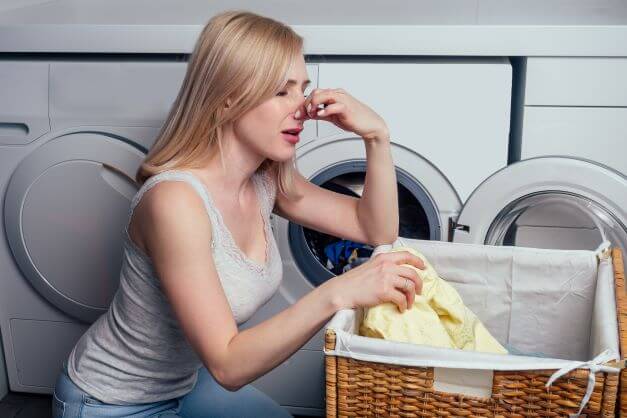
Incontinence
It happens when they no longer recognize the urge to move their bowels. Instead, they reach a point where they are unaware their bowels have moved.
Once you recognize their cues, you may be able to recognize signs they need to toilet and intervene. For example, some people get restless, pull at their clothing, or may even turn red in the face.
Once your loved one begins having accidents, it is time for you to start using incontinent products. Many different types of products are available, and knowing what’s available and when to use which product will make your life a little easier.
You can learn more about toileting products HERE.
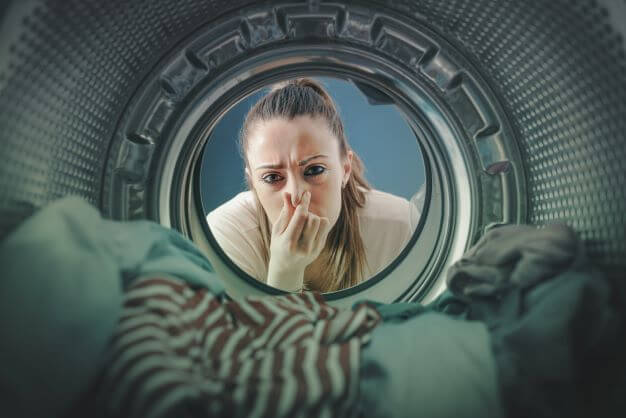
Understanding the different over-the-counter bowel Medications
When bowel slowing begins, most caregivers want to help but don’t know where to start. Once you understand how the types of bowel medicines work, choosing what’s best for your loved one makes it a little easier.
In the nursing homes, we started with prune juice on day 3, a suppository on day 4, and an enema on day 5. It would be best if you discussed a bowel plan with your doctor. Many of them have a preferred bowel regimen and will add a daily medicine to help prevent constipation.
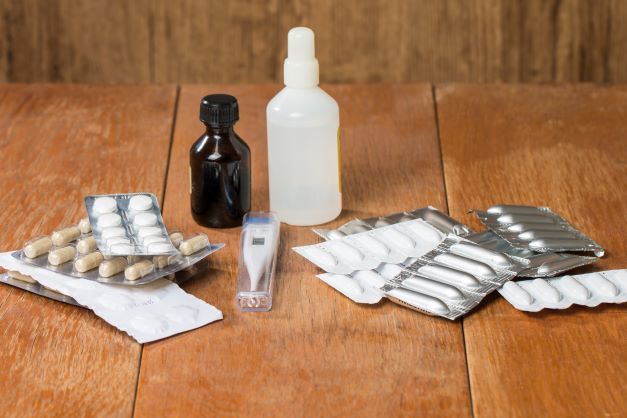
Fiber
Helps absorb water to add bulk to their stool to get the bowels going. However, you should push fluids because they can block the bowels if they don’t drink enough water. Citrucel and Metamucil are examples.
Stool Softeners
Pulls in water from your intestines to soften your stool. Colace is an example.
Stimulants
Causes your intestines to contract to the bowels moving. Examples are Dulcolax and Sennokot.
Osmotics
Draws water into your large intestine, so the stool is softer but can cause cramping, diarrhea, and nausea. Many contain Magnesia; for heart or kidney failure, it is essential to check with the doctor first to prevent harm. Examples are magnesium Citrate and Milk of Magnesia.
Suppositories
Go directly into the rectum and typically work by squeezing the intestines to move the bowels. Some also soften the stool. Glycerin and bisacodyl (Dulcolax) are typical choices.
Enemas
Push fluid directly into the rectum. The fluid softens the stool and makes for easier movement.
Too many steps?
They will begin to forget how to process tasks, and in the late moderate to severe stage, they simply can’t coordinate the steps of pooping. Instead, they will struggle to find the bathroom, recognize the toilet, remember how to pull their pants down, sit on the toilet, move their bowels, wipe, and pull their pants up. But, again, this is because there are so many steps for such a simple primary function. So, if you are having problems in these areas, try to figure out which action they are having trouble with.
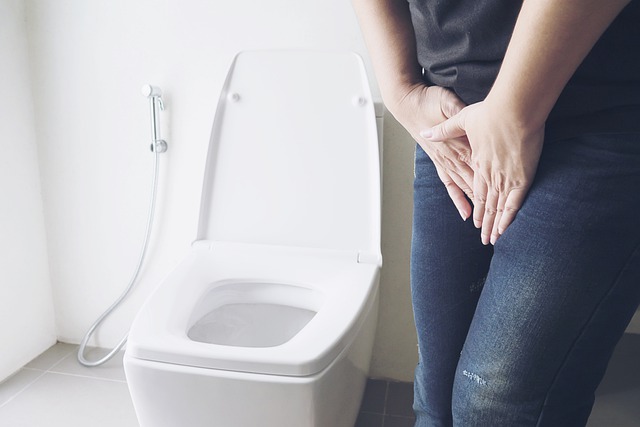
Where is the bathroom?
Dementia poop problems can occur at any of these steps and usually do. For example, problems finding the bathroom may result in finding they pooped in the wrong room. However, making sure the bathroom is easy to find, closing all other doors, and adding locks have worked for some caregivers. If the problem is at night, ensure the bathroom is well-lit, and the rest of the hallway is dark.
They may fail to recognize the toilet, and many caregivers had found a small round garbage can was used by their loved one instead of the toilet, even when it was right next to the toilet. Leaving the toilet lid open, using a different colored toilet seat, and removing the garbage can help stop this issue for some.
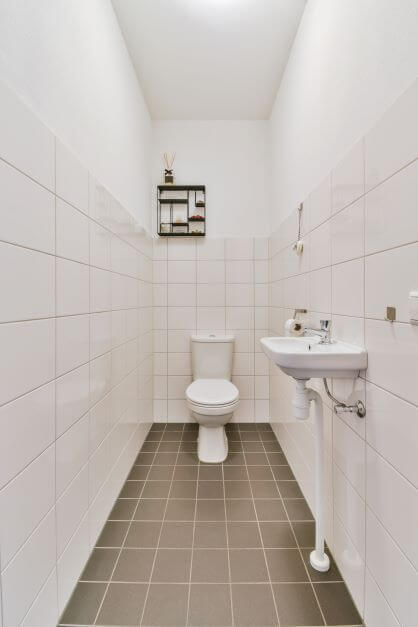
Dementia Poop “Oh My It’s Everywhere”!
Some will even remove their pullup or diaper and poop on the floor. But then, just when you think it couldn’t get worse, it does. Some of the worse Alzheimer’s poop issues are when they get their hands in it and smear it everywhere. So many times, I have heard, “There was poop EVERYWHERE”!
The thought here is that they didn’t realize they had pooped, but there was some discomfort in that area, so they explored the area with their hands, and the mess began. I have seen thousands of poopy fingernails during my career. I recommend you have a little manicure kit, including a fingernail brush. Soak them in warm, soapy water for the best results.
The worse Dementia poop issue is finding them eating their poop; although it is rare, it does happen.
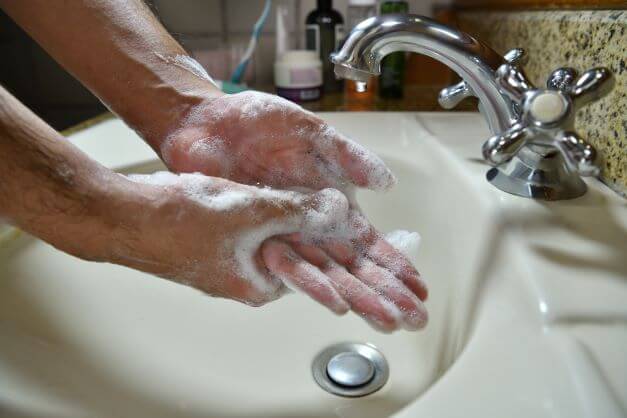
Dementia Poop Interventions
You may be wondering how in the world you will get through this. There are a few interventions that have worked for other caregivers. If you are having some of the more severe issues, your goal is to keep them from getting into their pullups/diapers.
Think about clothing that restricts easy access to that area. There are onesies for adults. Putting them on backward has worked for many caregivers, especially if they need assistance with toileting.
Find Onesie on Amazon HERE
Shelter of Calm:
Your Guide Through Dementia's Storm!
Is Dementia's chaos stealing your peace?
We're here to restore the calm, empowering you to confidently face each challenge.
Take the first step towards transformation now.

Toileting Schedule!
Having a toileting schedule can also help prevent incontinence episodes. Taking them to the toilet every 2 hours will help. Nursing has done this for many, many years.
Look at their diet; give them coffee or prune juice at breakfast. These are natural laxatives and will help you keep them on a routine.
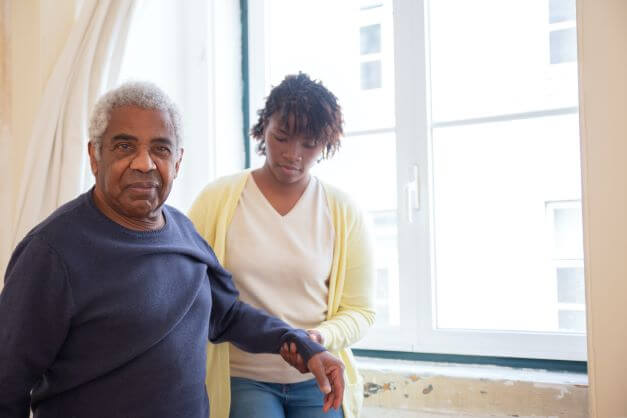
Toileting concerns
A clogged toilet is one of the most significant toileting issues caregivers face. As a result, many Dementia caregivers have spent lots of money on plumbers. In addition, many people with Dementia become obsessed with putting things in the toilet. All kinds of things, it’s similar to a young child and their fascination with putting things into toilets.
All types of paper products find their way into the toilet. Some caregivers don’t even keep paper towels or napkins in the house anymore.
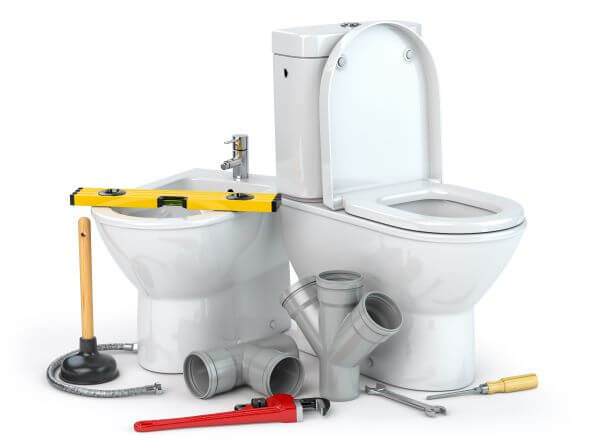
Toilet Interventions for Dementia Poop problems
I recommend keeping a single partial toilet paper roll in the bathroom. Otherwise, they may use a whole roll at a time. Do not leave wipes in the bathroom. Even though the label says you can flush them, they can clog your system. This video helps explain wipes in the sewer system. https://youtu.be/rcfucpVNPOo
Another trick some caregivers have used is to turn off the valve behind the toilet to prevent flushing. One family started doing this after their third plumber’s visit for a clogged toilet.
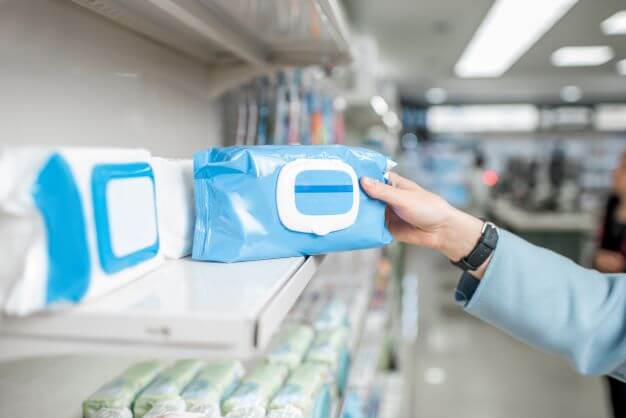
Dementia Poop Cleanup
Last but not least is the mess cleanup. I recommend a handheld shower sprayer. I recently learned from caregivers that a bidet works wonders! Also, disinfectant wipes are handy to have around to get rid of any bacteria that may be in the poop. Remember to wipe down doorknobs, also.
You may need to keep fingernail sticks on hand! Many caregivers often find poop under fingernails. It is best to clean them after a bath or shower, but you can also soak them in a little bowl of warm soapy water to soften the stool up before you try to get it out. You can find them HERE.
Finally, keep a mess cleanup kit handy with gloves, disinfectant wipes, small garbage bags, and a jar of Vicks. The Vicks helps mask the odor. Put a little bit in each of your nostrils, which usually overpowers the poop smell.

Many caregivers draw the line at poop cleanup and decide to place their loved one in a facility when it reaches that point. Know your limits and what your breaking point is. Not everyone can tolerate cleaning up toileting messes. Only you know your threshold.
I hope these tips help you prevent some of the above issues and get you through the events a little easier when they happen.

Conclusion
Navigating Dementia Poop Challenges with Care and Practical Solutions
Dealing with dementia involves more than just memory issues, and one of the significant concerns for caregivers is managing poop-related challenges. These issues can be overwhelming, from constipation to unexpected messes, but understanding and interventions can make a difference.
Dementia Poop Basics: As dementia progresses, bowel movements can become irregular, leading to constipation. It’s crucial to track bowel habits to prevent complications like bowel obstructions, which may result in emergency situations.
Dementia Poop Worries: Issues like diarrhea and incontinence add complexity. Diarrhea can lead to dehydration, a serious concern. Recognizing signs and involving the doctor when needed is crucial. Incontinence may happen when they no longer recognize the urge to move their bowels.
Bowel Medications: Understanding various bowel medications, including fiber, stool softeners, stimulants, osmotics, suppositories, and enemas, can help caregivers make informed choices. Establishing a bowel plan with a doctor’s guidance is beneficial.
Addressing Behavioral Challenges: In the later stages, individuals may struggle with the many steps involved in using the bathroom. Caregivers can adapt strategies to assist in finding the bathroom, recognizing the toilet, and completing the necessary steps.
Interventions for Severe Cases: For more severe challenges, caregivers may explore clothing options that restrict access or consider using a toileting schedule to prevent incontinence episodes.
Toilet Issues and Solutions: Clogged toilets and a fascination with putting things in them are common concerns. Caregivers can implement practical interventions like limiting toilet paper availability, avoiding wipes, and even turning off the toilet flush valve in extreme cases.
Cleanup Tips: Facing cleanup challenges, caregivers can equip themselves with handheld shower sprayers, bidets, disinfectant wipes, and a mess cleanup kit. Knowing personal limits is essential, and some may decide on facility placement when cleanup becomes too much.
Remember, these tips are here to lend a helping hand and make your journey a bit smoother. You’re not alone in facing these challenges, and finding the right balance for both you and your loved one is key. Wishing you strength and resilience on your caregiving journey! 🌼
The Dementia Caregiver Blog Library
Activities, Advanced Directives, Agitation, Apathy, Approach, Apps for Caregivers, Basic Caregiving, Bathing, Bathroom Safety, Caregiver Burnout, Caregiver Compassion, Caregiver Emotions, Caregiver Help, Caregiver Loneliness, Caregiver Support, Cold & Flu Season, Communication Challenges, Dehydration, Dementia Complications, Dementia Doctors, Dementia Safety Home, Dementia Types, Dementia-Friendly, Dressing Issues, Driving Safety, Eating Problems, Fall Prevention, Family Help, Finances, Guns & Dementia, Harm Prevention, Healthcare, Help at Home, Hiding Dementia, Holidays, Hospice, Hospital Stay, In-Between Stage, Kitchen Safety, Laughter, Legal Healthcare, Marijuana use, Medication Tips, Music, Nutrition, Pain, Patience, Poop Problems, Relationships, Reminiscing, Routine, Safety, Sense of Purpose, Shadowing, Sleep Issues, Stages of Dementia, Sundowning, Television, Time Travel, Traveling, Toileting, Wandering
Exploring Caregiving Tools & Resources? Don't Forget to Check Out My Resource Page! 🌟

Hi, I’m Larea, a Certified Dementia Specialist and Registered Nurse with 30 years of hands-on experience helping dementia patients in various settings, from hospitals to nursing homes and hospice. Drawing on personal experiences with my family members and patients over the years, I’m here to help guide you on your caregiving journey.


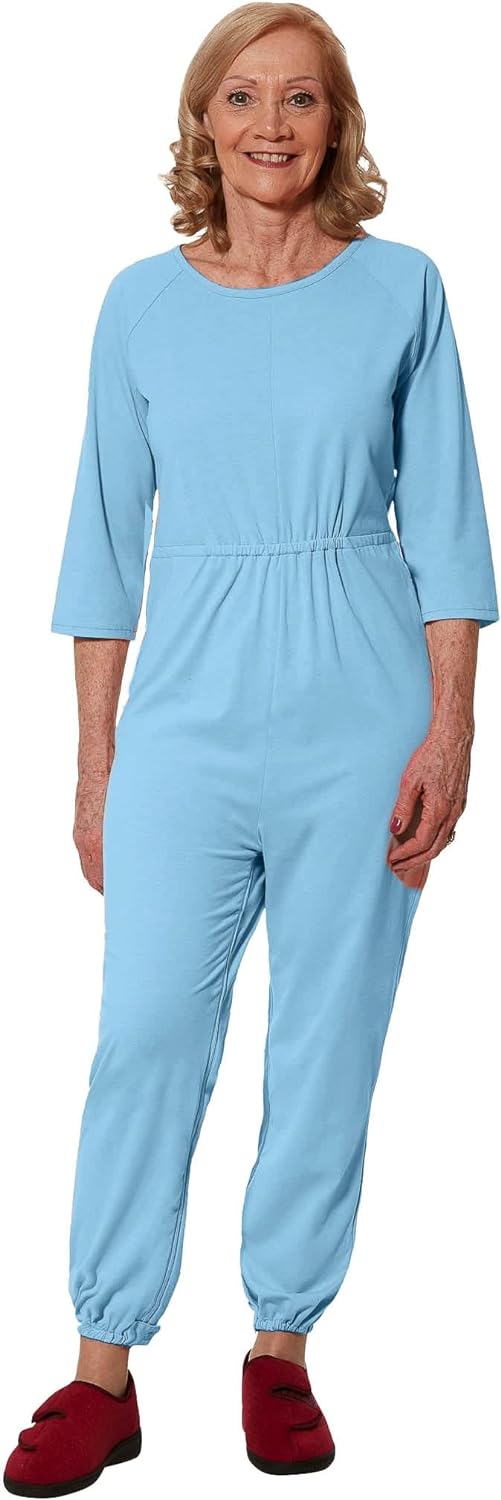
0 Comments